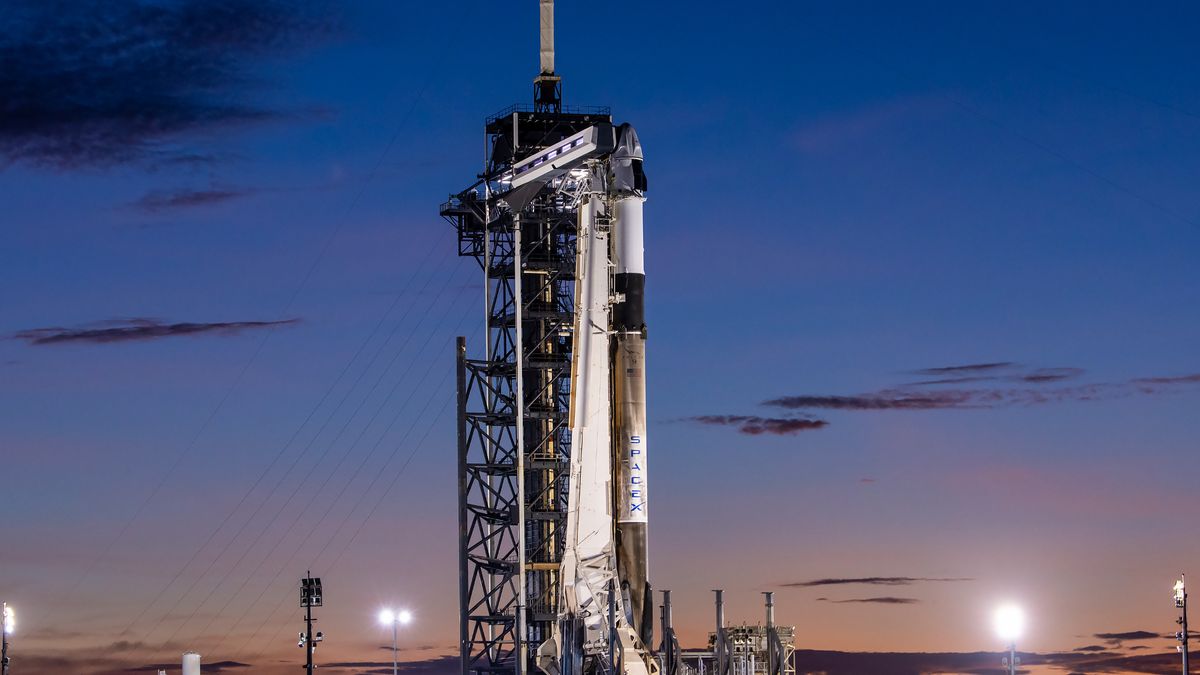We’ll have to wait at least another day to see SpaceX’s historic Polaris Dawn astronaut mission lift off.
Polaris Dawn, which will conduct the first-ever private spacewalk, had been scheduled to launch early Tuesday morning (Aug. 27) from NASA’s Kennedy Space Center in Florida. But a helium leak has forced a delay of at least 24 hours.
“Teams are taking a closer look at a ground-side helium leak on the Quick Disconnect umbilical. Falcon and Dragon remain healthy and the crew continues to be ready for their multi-day mission to low Earth orbit. Next launch opportunity is no earlier than Wednesday, August 28,” SpaceX announced in an X post on Monday evening (Aug. 26).
The launch, atop a Falcon 9 rocket, is now targeted for 3:38 a.m. EDT (0738 GMT) on Wednesday, though there are two backup opportunities on that day as well — 5:23 a.m. EDT (0923 GMT) and 7:09 a.m. EDT (1109 GMT). You can watch the action via a SpaceX webcast, which will begin at around midnight EDT (0400 GMT).
A “quick disconnect umbilical” is an interface connecting the Falcon 9 with a line coming from the launch tower. Helium is not a propellant for the Falcon 9’s Merlin engines — they burn kerosene and liquid oxygen — but SpaceX uses helium to pressurize fuel lines.
Related: SpaceX ‘go’ to launch private Polaris Dawn spacewalk mission on farthest human spaceflight since Apollo
Polaris Dawn is the first of three planned missions in the Polaris Program, a human-spaceflight project funded and organized by billionaire entrepreneur Jared Isaacman.
Isaacman will command Polaris Dawn. He’ll be joined aboard the mission’s Crew Dragon capsule by three crewmates: pilot Scott “Kidd” Poteet, a former lieutenant colonel in the U.S. Air Force, and mission specialists Sarah Gillis and Anna Menon, both of whom are SpaceX engineers.
Isaacman and Gillis will conduct a spacewalk on Day 3 of the mission — the first extravehicular activity ever performed on a commercial mission.
Polaris Dawn also aims to get a maximum of about 870 miles (1,400 kilometers) from Earth. That will be farther away than any crewed mission since Apollo 17 back in 1972.





















Discussion about this post